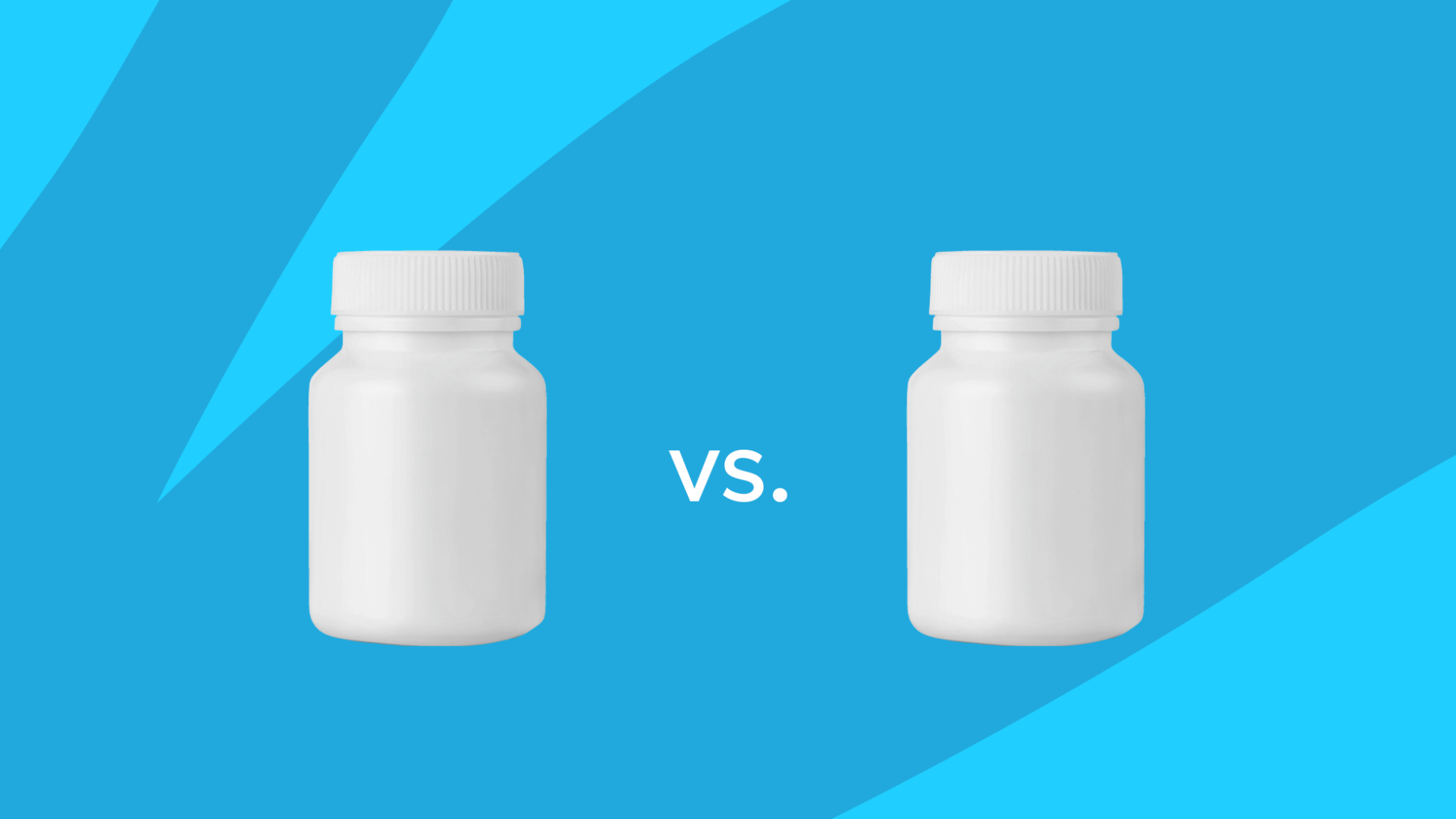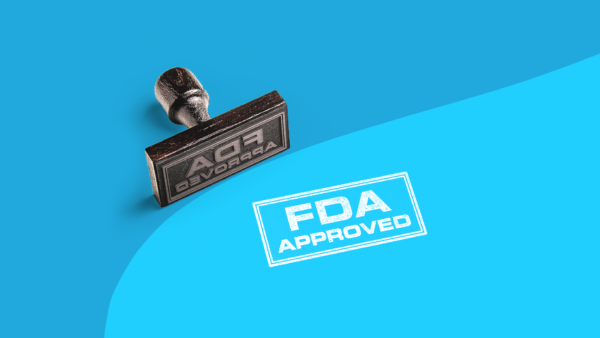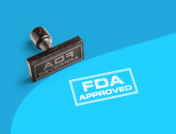Drug overview | Main differences | Conditions treated | Efficacy | Insurance coverage & cost comparison | Possible side effects | Drug interactions | Warnings | FAQs
Mydayis and Vyvanse are two brand-name medications used to treat attention deficit hyperactivity disorder (ADHD). ADHD medications are one part of a treatment plan that generally includes other measures like behavioral therapy and educational or work interventions. Vyvanse is also approved by the U.S. Food and Drug Administration (FDA) to treat moderate to severe binge eating disorder in adults.
Mydayis and Vyvanse are classified in a group of medications called central nervous system stimulants. They work by increasing levels of neurotransmitters (chemical messengers) called dopamine and norepinephrine in the brain. This improves symptoms of ADHD, such as impulsivity or hyperactivity, helping the patient pay attention and focus. Because they have a high potential for abuse, misuse, and dependence, Mydayis and Vyvanse are classified by the DEA as Schedule II controlled substances. Although both medications are CNS stimulants used for the treatment of ADHD, they have some differences, which we will discuss below.
What are the main differences between Mydayis and Vyvanse?
Both Mydayis and Vyvanse are central nervous system stimulants and are long-acting medications. Both are available in capsule form; Vyvanse also has a chewable tablet formulation. Mydayis is FDA approved for use in adults and pediatric patients 13 years and older, while Vyvanse can be used in adults and children 6 years and older for ADHD.
Both medications are classified by the DEA as Schedule II controlled substances. However, lisdexamfetamine, the ingredient in Vyvanse, is known as a prodrug. This means it is inactive until it is converted in the body to its active ingredient, dextroamphetamine. This mechanism lowers the abuse potential of Vyvanse.
The chart below outlines more information about available formulations and dosing.
Main differences between Mydayis and Vyvanse |
||
|---|---|---|
| Mydayis | Vyvanse | |
| Drug class | Central nervous system (CNS) stimulant | Central nervous system (CNS) stimulant |
| DEA drug schedule | Schedule II controlled substance | Schedule II controlled substance |
| Brand/generic status | Brand and generic | Brand and generic |
| What is the generic name? | Dextroamphetamine sulfate, amphetamine sulfate, dextroamphetamine saccharate, amphetamine aspartate monohydrate (some generics have been approved but may not be available in pharmacies yet) | Lisdexamfetamine dimesylate (also referred to as lisdexamfetamine) |
| What form(s) does the drug come in? | Extended-release capsules: 12.5 mg, 25 mg, 37.5 mg, 50 mg (these capsules contain 3 kinds of beads that release the medicine: an immediate-release and two different types of delayed-release beads) | Capsules: 10 mg, 20 mg, 30 mg, 40 mg, 50 mg, 60 mg, 70 mg
Chewable tablets: 10 mg, 20 mg, 30 mg, 40 mg, 50 mg, 60 mg |
| What is the standard dosage? | Adults: The starting dose is 12.5 or 25 mg by mouth daily in the morning. The healthcare provider may gradually increase the dose, if needed, to a maximum of 50 mg once daily
Pediatric patients 13-17 years old: The starting dose is 12.5 mg by mouth daily in the morning. The healthcare provider may gradually increase the dose, if needed, to a maximum of 25 mg once daily A dose of Mydayis can last up to 16 hours, so it is taken as one daily dose. |
Adults and children 6 years and older: The starting dose is 30 mg by mouth once daily. The healthcare provider may gradually increase the dose, if needed, to a maximum of 70 mg once daily
A dose of Vyvanse can last up to 14 hours, so it is taken as one daily dose. |
| How long is the typical treatment? | Varies | Varies |
| Who typically uses the medication? | Adults and pediatric patients ages 13 and older | ADHD: Adults and children 6 years and older
Binge eating disorder: Adults only |
Conditions treated by Mydayis and Vyvanse
Mydayis and Vyvanse are both used as part of a treatment plan for ADHD. Mydayis can be used in individuals who are 13 years and older, while Vyvanse can be used in individuals who are 6 years and older.
Additionally, Vyvanse is approved for moderate to severe binge eating disorder (note: it is not approved for weight loss) in adults. For this use, it is not approved in pediatric patients.
| Condition | Mydayis | Vyvanse |
| ADHD | Yes (ages 13 years and older) | Yes (ages 6 years and older) |
| Moderate to severe binge eating disorder | No | Yes (adults only) |
Is Mydayis or Vyvanse more effective?
There are two types of stimulant drugs—methylphenidate drugs such as Concerta, Ritalin, or Focalin, and amphetamine drugs. Both Mydayis and Vyvanse (along with drugs such as Adderall and Adderall XR) are examples of amphetamine-type stimulants. There is little data comparing Mydayis and Vyvanse directly.
For children or adolescents with ADHD, the American Academy of Pediatrics (AAP) recommends:
- Ages 4-6 years: parent training and/or classroom interventions, and a methylphenidate stimulant if medication is required
- For children ages 6 years older and adolescents, a specific stimulant or type of stimulant is not preferred over another
For adult ADHD, either type of stimulant drug may be effective.
In addition to many different stimulant ADHD drugs, there are also non-stimulant medications to consider, which include:
- Strattera (atomoxetine)
- Qelbree (viloxazine)
- Kapvay (extended-release clonidine)
- Intuniv (extended-release guanfacine)
Each type of medication has various pros and cons. Consult your healthcare provider for professional medical advice on which medication is appropriate for you. The best medication for you can only be determined by a doctor who can take into account individual factors such as ADHD symptoms, medical condition(s), medical history, and other factors. Remember, medication is one part of a treatment plan that includes other measures such as therapy and work or classroom interventions. Your healthcare provider can coordinate a comprehensive treatment plan.
Coverage and cost comparison of Mydayis vs Vyvanse
Commercial health insurance plans may or may not pay for brand-name Mydayis or Vyvanse but will often pay for the generic version. You can check with your insurance plan for the most recent information on pricing estimates.
A one-month supply of 50 mg capsules of brand-name Mydayis without insurance would cost about $465, but if you choose generic (if available) and use a SingleCare discount, you could pay as low as $104.
For Vyvanse, a one-month supply of 70 mg brand-name capsules without insurance would cost approximately $555, but you could pay as little as $102 if you choose generic and apply a SingleCare discount.
| Mydayis | Vyvanse | |
| Typically covered by insurance? | Varies | Varies |
| Typically covered by Medicare Part D? | No | No |
| Quantity | #30, 50 mg capsules | #30, 30 mg capsules |
| Typical Medicare copay | N/a | N/a |
| SingleCare cost | $104 | $102 |
Common side effects of Mydayis vs Vyvanse
Common side effects of Mydayis in adults include trouble sleeping, appetite and weight loss, dry mouth, fast heart rate, and anxiety. Common side effects of Mydayis in pediatric patients include trouble sleeping, appetite and weight loss, nausea, and irritability.
Common side effects of Vyvanse in adults and pediatric patients with ADHD include trouble sleeping, appetite and weight loss, dry mouth, anxiety, dizziness, irritability, and stomach problems like nausea, vomiting, diarrhea, and stomach pain. Adults with BED may also experience jitters and constipation.
Serious side effects may occur with both drugs, such as high blood pressure, increased heart rate, circulation problems, seizures, and tics or worsening of Tourette’s syndrome. This is not a full list of side effects, and others may occur. Consult your healthcare provider for more information about side effects.
| Mydayis | Vyvanse | |||
| Side Effect | Applicable? | Frequency | Applicable? | Frequency |
| Anxiety | Yes | 7% | Yes | 6% |
| Insomnia | Yes | 31% | Yes | 27% |
| Decreased appetite | Yes | 30% | Yes | 27% |
| Weight loss | Yes | 9% | Yes | 3% |
| Dry mouth | Yes | 23% | Yes | 26% |
| Increased heart rate | Yes | 9% | Yes | 2% |
Source: Mydayis (DailyMed), Vyvanse (DailyMed)
Drug interactions of Mydayis vs Vyvanse
Before taking Mydayis or Vyvanse, tell your healthcare provider about all the medications you take, including prescription drugs, OTC meds, vitamins, and supplements.
Drugs known as acidifying agents, such as vitamin C, decrease levels of Mydayis or Vyvanse in the body. On the other hand, alkalinizing agents, such as sodium bicarbonate (found in certain antacids), increase blood levels. A dosage adjustment and close monitoring may be required.
Other drugs that interact with both Mydayis and Vyvanse include:
- Monoamine oxidase inhibitors (MAOIs; these should not be taken within 14 days of Mydayis or Vyvanse) can cause a high blood pressure emergency or neurological reactions, which can be life-threatening or cause death.
- Drugs that increase serotonin levels, could cause a life-threatening condition called serotonin syndrome. These include selective serotonin reuptake inhibitors (SSRIs), selective norepinephrine reuptake inhibitor drugs (SNRIs), tricyclic antidepressants, buspirone, and Wellbutrin (bupropion). Notably, tricyclic antidepressants such as amitriptyline or nortriptyline interact in this way, and they also can worsen the cardiovascular effects of stimulant medication, so they interact via several mechanisms.
This is not a complete list of drug interactions. Consult your healthcare provider for more information about drug interactions and how they may affect you.
| Drug | Drug Class | Interact with Mydayis? | Interact with Vyvanse? |
| Vitamin C | Acidifying agents | Yes | Yes |
| Sodium bicarbonate | Alkalinizing agents | Yes | Yes |
| Phenelzine
Selegiline Tranylcypromine |
Monoamine oxidase inhibitors | Yes | Yes |
| Antidepressants
Dextromethorphan Lithium Opioid pain medications St. John’s wort Triptans for migraine |
Drugs that increase serotonin levels | Yes | Yes |
Warnings of Mydayis and Vyvanse
Both drugs have a black box warning, the most serious warning required by the FDA. The warning states that these medications have a high potential for abuse and misuse, which can lead to a substance use disorder and addiction. Misusing and abusing stimulants can lead to overdose and death.
Other warnings include:
- Avoid using Mydayis or Vyvanse in people with heart problems.
- Mydayis or Vyvanse can increase blood pressure and heart rate.
- Mydayis or Vyvanse can cause psychiatric side effects.
- CNS stimulants can affect growth in children. Height and weight will be monitored.
- Circulation disorders can occur, including Raynaud’s phenomenon.
- Mydayis or Vyvanse can increase the chances of having seizures.
- People who take Mydayis or Vyvanse will be monitored for the emergence or worsening of tics or Tourette’s syndrome.
- Serotonin syndrome, a life-threatening condition caused by the buildup of too much serotonin, can occur. There is a higher risk of serotonin syndrome when taking other medications that affect serotonin levels, such as antidepressants, opioid pain medications, St. John’s wort, and certain other medications. You should get emergency help if you have symptoms of serotonin syndrome. Signs and symptoms may include agitation, anxiety, mood or mental status changes, confusion, loss of muscle coordination, fever, flushed skin, sweating, shivering, fast heart rate, high blood pressure, nausea, vomiting, diarrhea, stiff or rigid muscles, dilated pupils, seizures, irregular heartbeat, and unconsciousness.
Frequently asked questions about Mydayis vs Vyvanse
What is Mydayis?
Mydayis is a central nervous system (CNS) stimulant. It contains the active ingredients dextroamphetamine sulfate, amphetamine sulfate, dextroamphetamine saccharate, and amphetamine aspartate monohydrate. It is FDA approved to treat ADHD in individuals who are 13 years or older.
What is Vyvanse?
Like Mydayis, Vyvanse is a CNS stimulant. It contains the ingredient lisdexamfetamine, which is converted in the body to its active form of dextroamphetamine. This helps lower the abuse potential of Vyvanse. Vyvanse is FDA approved to treat ADHD in adults and children 6 years and older, as well as moderate to severe binge eating disorder in adults.
Are Mydayis and Vyvanse the same?
Although both of these medications are amphetamine-type stimulants, they do have some differences, as outlined above.
Is Mydayis or Vyvanse better?
Neither medication has been found to be better than the other. Because they both are amphetamine-type stimulants, they are very similar. Your healthcare provider can give professional medical advice on various treatment options and which medication is better for you.
Can I use Mydayis or Vyvanse while pregnant?
No. Both medications can cause harm to the unborn baby and should not be used while pregnant or breastfeeding. If you already take Mydayis or Vyvanse and find out that you are pregnant, notify your healthcare provider right away.
Can I use Mydayis or Vyvanse with alcohol?
Stimulant drugs like Mydayis or Vyvanse should not be combined with alcohol. Additionally, with Mydayis specifically, alcohol can make the drug release faster than it should, which can result in more serious side effects. Consult your healthcare provider for more information about alcohol use.
Sources
- Mydayis, National Library of Medicine DailyMed (2023)
- Dextroamphetamine and amphetamine, MedlinePlus (2019)
- Vyvanse, National Library of Medicine DailyMed (2023)
- Lisdexamfetamine, MedlinePlus (2021)
- Attention-deficit/hyperactivity disorder, National Institute of Mental Health (2023)
- Drug scheduling, United States Drug Enforcement Administration
- ADHD treatment recommendations, Centers for Disease Control and Prevention (2023)
- Treatment and management of ADHD in adults, American Academy of Family Physicians











